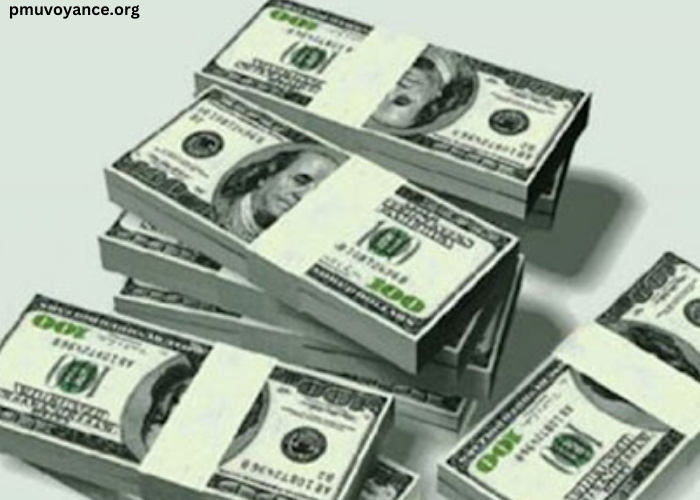
In today’s interconnected global economy, understanding currency conversion is essential for both personal and business transactions. One significant currency conversion is the exchange rate between the United States Dollar (USD) and the West African CFA Franc (XOF). This article delves into the dynamics of converting Dollars to CFA Francs, exploring the factors that influence exchange rates, and examining the broader economic implications.
The Basics of Dollars and CFA Francs
The United States Dollar (USD) is one of the most widely used and recognized currencies in the world. As the official currency of the United States, it plays a crucial role in international trade and finance. The West African CFA Franc (XOF), on the other hand, is used by several countries in West Africa, including Burkina Faso, Ivory Coast, Mali, Niger, Senegal, and Togo. The CFA Franc is pegged to the Euro, which helps stabilize its value against major global currencies.
How Exchange Rates Are Determined
Exchange rates between the Dollar and the CFA Franc are influenced by various factors. Economic indicators, geopolitical events, and market speculation all play a role in shaping the value of these currencies. For instance, changes in interest rates set by the U.S. Federal Reserve or the European Central Bank can impact the Dollar’s strength relative to the CFA Franc. Additionally, economic data such as GDP growth, inflation rates, and employment figures contribute to fluctuations in exchange rates.
The Role of Currency Pegs
The CFA Franc is pegged to the Euro, which means its value is closely tied to the performance of the Eurozone’s economy. This peg provides stability for the CFA Franc but also means that the currency’s value can be affected by changes in the Euro’s strength against other major currencies, including the Dollar. For instance, if the Euro strengthens against the Dollar, the CFA Franc may also appreciate in value relative to the Dollar, and vice versa.
Impact on Trade and Investment
Currency conversion between the Dollar and the CFA Franc has significant implications for trade and investment. For businesses engaged in international trade, fluctuations in exchange rates can affect the cost of importing and exporting goods. A stronger Dollar can make U.S. exports more expensive for buyers in CFA Franc-using countries, potentially reducing demand. Conversely, a weaker Dollar can make U.S. goods more affordable, boosting exports.
For investors, changes in exchange rates can impact the returns on investments denominated in different currencies. Investors holding assets in CFA Francs may experience changes in their investment value when converting returns into Dollars, and vice versa. Currency fluctuations can thus influence investment decisions and portfolio management.
Personal Financial Implications
On a personal level, understanding the exchange rate between the Dollar and the CFA Franc is crucial for travelers and expatriates. When traveling to or from West Africa, individuals need to convert their Dollars into CFA Francs or vice versa. Exchange rate fluctuations can affect the amount of money one receives or pays during currency conversion, impacting travel budgets and expenses.
Expats working in CFA Franc-using countries and sending remittances back home to the U.S. also need to be aware of exchange rates. Currency conversion can influence the amount of money received or sent, affecting financial planning and budgeting.
Exchange Rate Trends and Forecasts
Predicting future trends in the Dollar-CFA Franc exchange rate involves analyzing various economic indicators and market conditions. While it is challenging to forecast exchange rate movements with certainty, economic trends such as changes in interest rates, inflation rates, and economic growth can provide insights into potential currency fluctuations.
Market analysts and financial institutions often use historical data and economic models to estimate future exchange rate trends. However, unforeseen events such as geopolitical developments or economic crises can cause sudden shifts in exchange rates, highlighting the importance of staying informed about global economic conditions.
Strategies for Managing Currency Risk
Both businesses and individuals can employ strategies to manage currency risk associated with exchange rate fluctuations. For businesses involved in international trade, hedging techniques such as forward contracts or options can help lock in exchange rates and mitigate the impact of currency fluctuations. Similarly, investors may diversify their portfolios across different currencies to reduce exposure to currency risk.
On a personal level, travelers and expatriates can use tools such as currency converters and mobile apps to monitor exchange rates and make informed decisions about currency conversion. Planning and budgeting with exchange rate considerations in mind can help manage financial impact.
The Future of the Dollar-CFA Franc Exchange Rate
As global economic conditions continue to evolve, the exchange rate between the Dollar and the CFA Franc will likely experience fluctuations. Factors such as changes in global trade dynamics, economic policies, and geopolitical events will influence the value of these currencies. Staying informed about economic developments and understanding currency conversion will remain essential for businesses and individuals engaged in international transactions.
Conclusion
The exchange rate between the Dollar and the CFA Franc plays a crucial role in the global economy, affecting trade, investment, and personal finances. By understanding the factors that influence currency conversion and staying informed about economic trends, businesses and individuals can navigate the complexities of currency exchange and make informed decisions. As the world economy continues to evolve, keeping abreast of exchange rate developments will be key to managing financial impact and optimizing opportunities in the international arena.